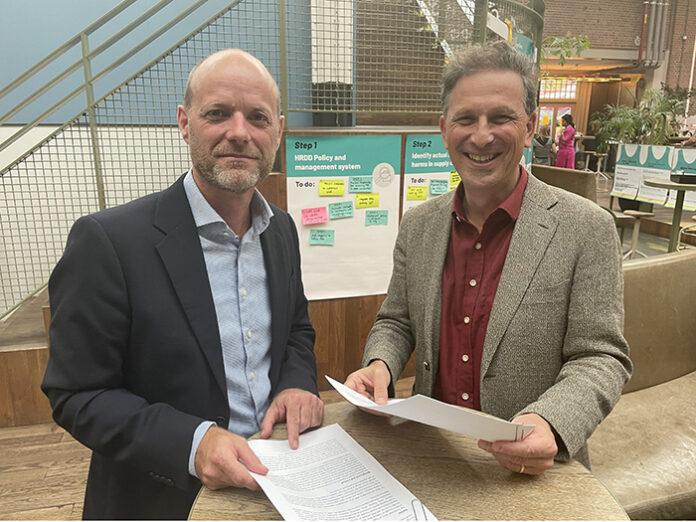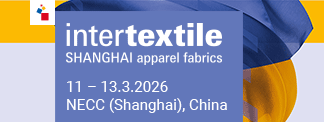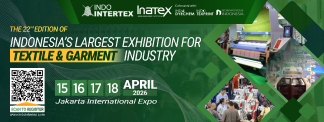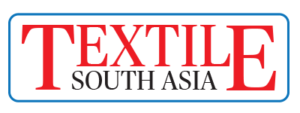Fair Wear Foundation and the Sustainable Terms of Trade Initiative (STTI) sign a Memorandum of Understanding (MoU), committing to further strengthening their collaboration on advancing systemic change in the garment and textile industry through the promotion and facilitation of responsible purchasing practices and, more broadly, the impactful implementation of the human rights due diligence (HRDD) framework. This is especially important considering the stagnating progress in the industry.
Fair Wear and STTI share the vision of a just garment and textile industry in which brands actively engage in a dialogue with stakeholders from manufacturing countries to improve working conditions. Crucially, brands must establish equal partnerships with their suppliers who have valuable knowledge and practical insights to inform brands’ HRDD efforts, including responsible purchasing practices. The latter are key in enabling the suppliers who will ultimately need to implement the improved working conditions: For example, collaborative production planning can help reduce excessive overtime hours.
“Fair Wear has been actively advocating for and guiding brands in taking responsibility to respect human rights in their supply chains through implementing a shared responsibility approach for over 20 years. Equal partnerships between brands and suppliers are crucial in realising better working conditions in the garment and textile industry. Strengthening our collaboration with STTI is essential to define further how such partnerships work in practice, especially how suppliers can help brands adapt their sourcing practices,” explains Margreet Vrieling, Associate Director at Fair Wear.
STTI have already been contributing important recommendations from their White Paper on the Definition and Application of Commercial Compliance to the Common Framework of Responsible Purchasing Practices (CFRPP), a set of principles around responsible behaviour developed by a comprehensive group of MSIs, amongst which Fair Wear, and expert organizations, including a process of stakeholder consultation. The MoU between Fair Wear and STTI consolidates the organizations’ intentions to further integrate STTI into the work of the CFRPP.
Matthijs Crietee, Secretary General at IAF, co-initiator of STTI, states: “The manufacturers gathered in STTI seek collaboration with brands and retailers to push real improvements in purchasing practices. The MoU with Fair Wear opens up the opportunity to establish a stronger link with the Fair Wear member brands. Beyond that, with Fair Wear’s expertise on human rights due diligence, the collaboration with STTI takes on a bigger dimension, helping both organizations move the needle on a global infrastructure that can help drive more responsible purchasing practices.”
With upcoming EU legislation on HRDD requiring brands to take responsibility and review the impact of their business operations, Fair Wear’s experience in guiding and assessing around 130 brands on their implementation of HRDD combined with STTI’s insights through representing supplier associations from 10 manufacturing countries will produce helpful insights and guidance on what responsible purchasing practices look like.












